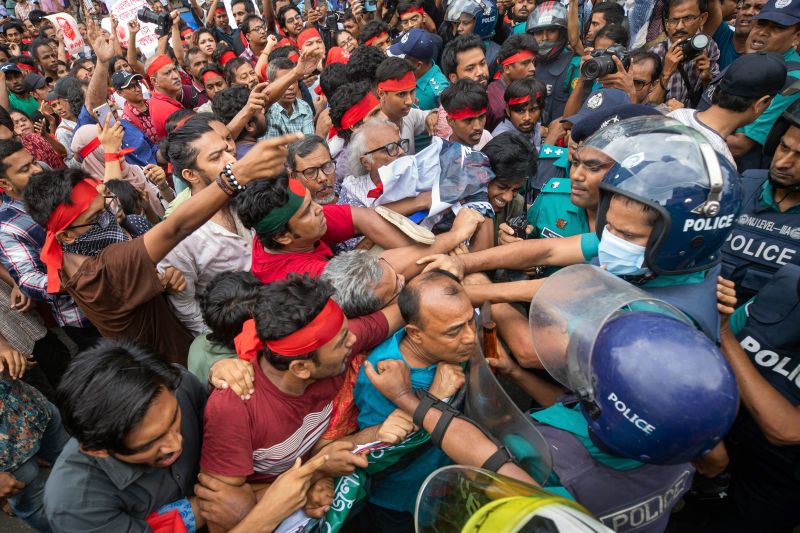
Bangladesh Takes Decisive Action: Jamaat-e-Islami Party Ban After Violent Protests Claim Over 200 Lives
In a recent development in Bangladesh, the government has decided to ban the Jamaat-e-Islami party following violent protests that resulted in the tragic deaths of over 200 individuals. This decision comes as a response to the escalating unrest and instability caused by the party’s activities in the country.
The Jamaat-e-Islami party is known for its conservative Islamic ideology and has faced controversies and criticism over the years for its alleged involvement in violent acts and extremist activities. The party’s ban has been a contentious issue that has divided opinion in Bangladesh, with some arguing that it is a necessary step to maintain peace and order in the country, while others view it as an attack on political freedoms and rights.
The violent protests that led to the party’s ban were a result of longstanding tensions and grievances between different factions within Bangladeshi society. The clashes between the supporters of Jamaat-e-Islami and government forces escalated quickly, leading to a tragic loss of lives and widespread destruction.
The government’s decision to outlaw the Jamaat-e-Islami party reflects its commitment to cracking down on extremism and maintaining stability in the country. The ban is seen as a proactive measure to prevent further violence and ensure the safety of citizens.
However, critics of the ban argue that it could have negative implications for political freedoms and civil liberties in Bangladesh. They raise concerns about the potential for further radicalization and unrest among supporters of the party who may feel marginalized and persecuted by the government’s actions.
The aftermath of the ban on Jamaat-e-Islami remains uncertain, with many questions surrounding the future of the party and its members. It is unclear how the government plans to address the underlying issues that led to the violent protests and whether the ban will be effective in curbing extremism in the country.
Overall, the decision to ban the Jamaat-e-Islami party in Bangladesh has sparked a contentious debate about the balance between maintaining security and upholding democratic values. It remains to be seen how the government will navigate the aftermath of the ban and address the root causes of the unrest that has gripped the country.
